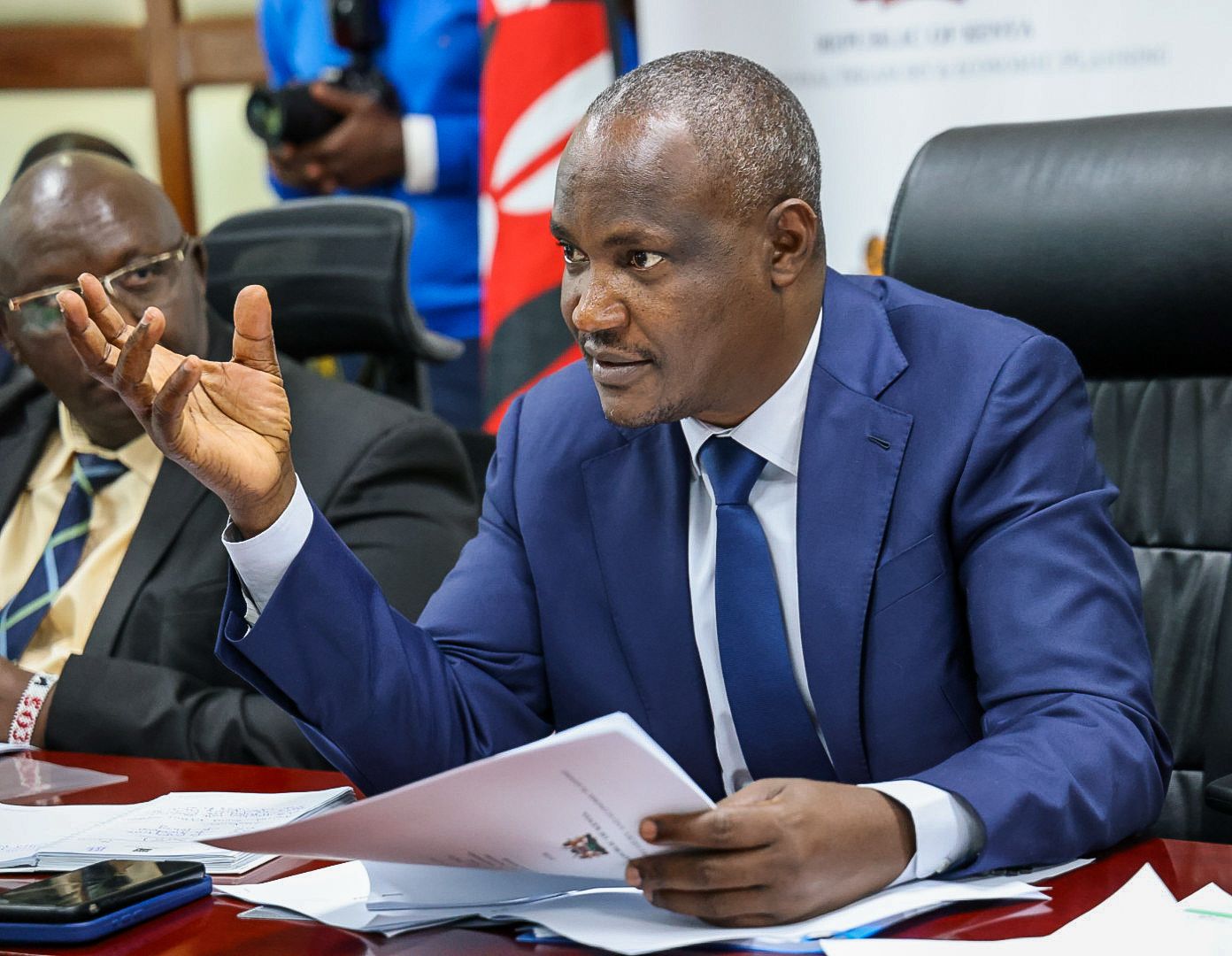Budget clash as Treasury slashes Parliament's Sh7 billion boost

Lawmakers had amended the 2025/26 Budget Policy Statement to raise Parliament’s allocation from Sh42.4 billion to Sh49.4 billion.
The Treasury has rejected a push by members of Parliament to increase their budget by Sh7 billion, highlighting a growing clash between government spending targets and legislative demands.
Lawmakers had amended the 2025/26 Budget Policy Statement to raise Parliament’s allocation from Sh42.4 billion to Sh49.4 billion.
However, the Treasury, led by Cabinet Secretary John Mbadi, has maintained the original figure, saying the higher amount cannot be supported under the current fiscal framework.
In a report to the National Assembly, Mbadi cited the Cabinet’s directive to keep the budget deficit at 4.5% of the country’s Gross Domestic Product, saying this was the main reason for revising down the proposed increases.
"Parliament had proposed additional resources which could not be accommodated within the current fiscal framework," Mbadi told legislators in a formal brief.
The Treasury’s final estimates, released as part of the 2025-26 budget plan, reflect a commitment to strict spending controls amid a Sh11 trillion debt load and ongoing economic pressure.
These measures include cuts across several arms of government, despite earlier approvals by lawmakers.
The Executive's proposed funding has been trimmed by Sh18.8 billion, bringing it down to Sh2.42 trillion, while the Judiciary’s allocation has been slightly reduced by Sh87 million, settling at Sh26.6 billion.
Parliament's budget has been capped at Sh42.5 billion, reverting to the original proposal and ignoring the Sh7 billion increase MPs had endorsed.
In addition to cuts affecting national institutions, funding for public participation initiatives was reduced from Sh3 billion to Sh2.5 billion.
Meanwhile, the Treasury retained the allocation for the National Government Constituency Development Fund at Sh58.8 billion, aligning with the legal limit of 2.5% of ordinary revenue.
MPs had earlier set out a Sh2.57 trillion spending plan for the national government, with Sh2.44 trillion allocated to the Executive, Sh26.7 billion to the Judiciary, and Sh49.4 billion to Parliament.
They also earmarked Sh405 billion for county governments and Sh3 billion for public engagement efforts.
However, most of these adjustments were dismissed by the Treasury as unaffordable under current budget constraints.
The move has set the stage for a potential standoff, with legislators expected to review and debate the Treasury's proposals.
As the final say rests with Parliament, questions remain on whether lawmakers will override the Executive and insist on their preferred allocations.
At the heart of the matter is the government’s broader attempt to rein in spending.
President William Ruto has directed all departments to adopt strict cost-cutting measures to ensure efficient use of public funds.
The Treasury has also outlined a plan to slow down the rate of debt growth while focusing on a liability management strategy designed to ease future repayment pressures.
Mbadi said the objective is to improve the country’s financial position without undermining the delivery of public services.
"The goal is to enhance the country’s debt position," he said, adding that more revenue would allow for future spending adjustments.
Despite rising public needs, the government insists the focus remains on stability and living within means.
Parliament, often viewed as one of the best-funded institutions in Kenya, is now under pressure to accept the leaner budget in the interest of national priorities.
